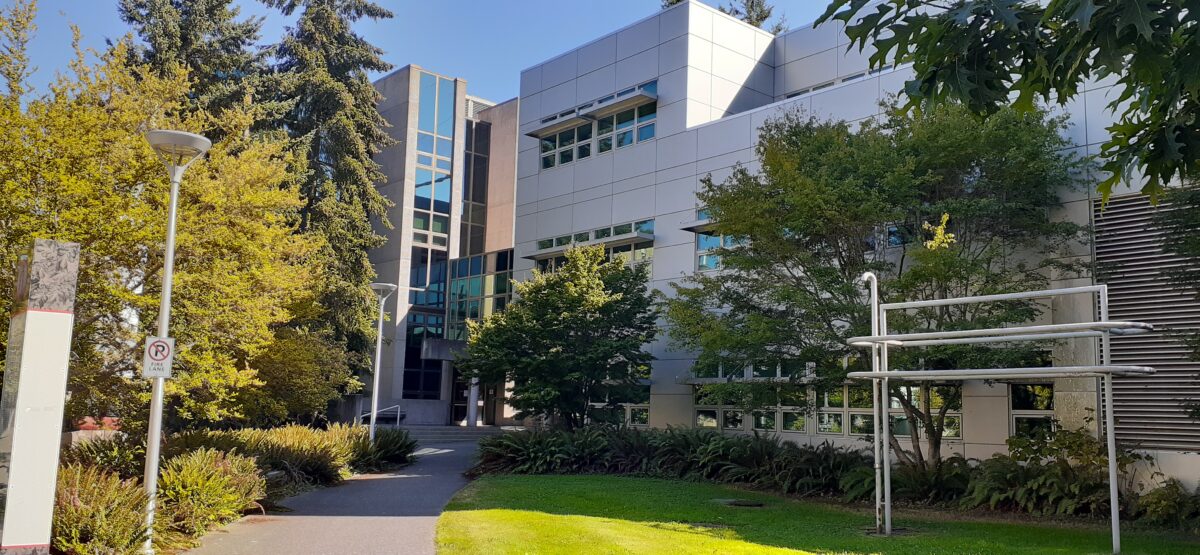The work of engineers is undertaken in the context of diverse and complex social issues. It is time for university curricula to reflect this reality

Engineering is generally perceived as a highly technical field of study with no shortage of complex math and physics. Yet engineering, at its core, looks to develop solutions for society’s problems, like safe drinking water supply and disaster recovery, which are largely social in nature. Unfortunately, this core concept is not well-reflected in university curricula.
I have spent six and a half years studying mechanical engineering through three programs at two academic institutions, including the University of Victoria. From my experience, the UVic mechanical engineering curriculum allows students to choose only one non-technical elective. After a preliminary survey, I found that many other universities across Canada appear to have a similar lack of non-technical exposure in their engineering curricula.
The UVic Faculty of Engineering mission statement aims to create economic, social, and environmental benefits for the community. Yet, through the current curriculum, these benefits are not all meaningfully addressed.
In my academic program, I chose GEOG 306 as my elective. This course critically analyzed the political, social, and cultural history of Canada, providing perspective on how this history has shaped the country, as well as a socio-political context for me to further understand the broader implications of engineering. Other students were free to choose their own elective from a lengthy pre-approved list.
These non-technical electives are intended to help students gain an understanding of issues and thought processes central to the humanities and social sciences. But can this really happen through a single, isolated course?
This begs the question — how can engineering students help build a just future if they do not have the opportunity to fully understand the issues that challenge society today?
Yes, it is true that some senior engineering courses include short, isolated, non-technical topics such as the environmental implications of a specific technology. However, in my experience, these sections are often discrete, given low priority, and either rushed or canceled by the end of the semester. On top of this, important topics like the social and ethical implications of a proposed solution are seldom explored.
And yes, engineering students are required to take introductory courses on ethics and engineering law, giving a basic overview of how issues like climate change mitigation fit into society’s social, ethical, and legal framework. But these mandatory courses are isolated from the curriculum’s technical subjects, which are commonly seen as the “real” engineering content.
This isolated and highly limited approach to engineering ethics and other non-technical topics is not working. It provides a narrow perspective that can lead students to consider non-technical issues irrelevant to the core problem-solving process of engineering.
I do not stand alone with this concern. There is a growing body of research supporting increased inclusion and integration of non-technical topics within engineering curricula.
For example, Dr. Erin Cech released a study in 2013 showing that U.S. engineering students across four colleges experienced a significant decline in their concern for public welfare throughout their education. Additionally, Dr. Madeline Polmear and others published a study in 2021 highlighting how exposure to non-technical topics significantly affects engineering students’ perceptions regarding the role of ethics and social influence in the engineering profession.
These studies stress that issues of ethics and social influence should not be left for engineers to learn through professional practice. It is essential that students are exposed to these topics through their education to develop a solid understanding of the broader effects of their work.
These studies also highlight the need to better facilitate integration of non-technical topics within engineering curricula. UVic is no exception.
In today’s world, the work of engineers is undertaken in the context of diverse and complex social issues like safe drinking water supply, disaster recovery, and climate change mitigation. This work can span diverse social and cultural landscapes, be it in mega cities or remote communities across high-income and low-income regions. It is time for university curricula to reflect this reality.
Moving forward, it is essential for universities to allocate resources towards modernizing engineering education. Program administrators must critically analyze their curricula and ensure that students are exposed to ethics and issues of social welfare, topics traditionally isolated in the domain of social sciences. This can be accomplished by providing a diverse and meaningful selection of courses from other faculties and better integration of these topics within the existing technical curricula.
Finally, students and professors must choose to engage with and question these topics both inside and outside of the classroom.
As stated by Cech, an influential researcher with an engineering degree and a doctorate in sociology: “If students are not prepared to think through these issues of public welfare, then we might say they are not fully prepared to enter the engineering practice.”







